Top 5 FoodTech Trends of 2021
These companies are setting the stage for the future of FoodTech
The growing presence of software in the food industry has allowed farmers, restaurants, and businesses across the food value chain to keep up with changing customer demands. This sector has rapidly advanced in recent years-- unique investments in FoodTech from VCs and private equity funds have doubled from 223 in 2015 to 459 in 2017, according to an article by TechCrunch. FoodTech companies and startups span a wide range of missions and industries, from mobile apps to lab-developed supplements and food additives. However, many of today’s thriving businesses follow consumer-driven trends.
Over the past few years, customers have become increasingly conscious of health, environmental sustainability, food waste, and alternative diets. However, the pandemic has also led to industry-wide changes no one could have anticipated. For example, customers today steer away from indoor dining and instead get food delivered. So while many delivery apps have enjoyed increased traffic over the past few months, restaurant apps didn’t have the same good fortune. After the latest Chicago indoor dining ban went into effect in late October, the reservation app Tock was forced to repay customers any remaining money that wasn’t refunded by the restaurants. At the same time, the top four US delivery apps more than doubled their revenue from April to September this year, compared to 2019, according to MarketWatch.
The events of the past year have turned the industry on its head, propelling some businesses forward and stopping others in their tracks. Here are some of the top FoodTech trends of 2021, as well as the leading companies pursuing new innovations.
1. Clean Meat
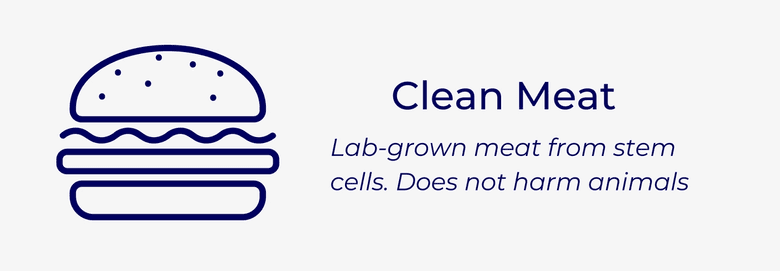
Whether you want to call it slaughter-free, cultured, or lab-grown-- clean meat has been on the horizon since the early 2000s, most recently popularized by Paul Shapiro’s 2018 book Clean Meat: How Growing Meat Without Animals Will Revolutionize Dinner and the World. This humane alternative is made by removing stem cells from the animal in a harmless biopsy, then growing them in the lab using a process similar to what would normally take place inside the animal’s body. The industry is highly competitive, as many companies are in the process of developing their own versions, including Mosa Meat, BlueNalu, and Memphis Meats, among others.
Our pick: Aleph Farms

What do they do?
Aleph Farms was co-founded by a professor at the Technion Institute of Technology in Israel and the FoodTech incubator The Kitchen Hub. Its steak-growing process is driven by patented tissue cultivators that provide warmth and elements needed to build tissue inside the animal, like water, proteins, carbohydrates, fats, vitamins, and minerals. This allows it to co-culture muscle, fat, and connective tissue, which has been a roadblock for many companies in the industry.
What are they up to?
Aleph Farms are major innovators in the world of clean meat. It recently unveiled the prototype of its thin-cut beef steaks at the Asia-Pacific Agri-Food Innovation Summit on November 20th of this year. It hopes to pilot a commercial launch by the end of 2022.
On October 21 of this year, the company also announced the launch of Aleph Zero, a program to grow steaks in space. “This mission will forward our vision for advancing food security by producing fresh quality meat anywhere, independent of climate change and of availability of local natural resources,” they said in a company blog post. They hope that this contribution will support efforts toward deep-space exploration and colonization of new planets.
2. Vertical Farming
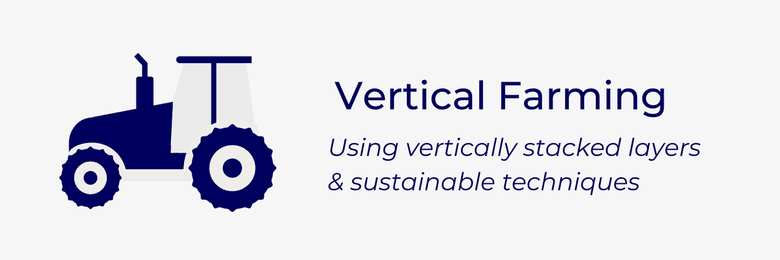
The term vertical farming refers to the practice of cultivating crops in vertically stacked layers, often incorporating indoor agriculture and soilless farming techniques like hydroponics, aquaponics, and aeroponics. While the modern idea of vertical farming has been in development for decades, the first commercial vertical farm didn’t open until 2012 in Singapore. Recently, many companies have adopted vertical farming techniques as a means of organic and sustainable food production, as it uses less water, requires fewer transportation costs, and naturally shields plants from bugs and critters, therefore eliminating the need for GMOs or pesticides. Some of today’s leading vertical farming companies include Bowery Farming, Plenty, and Gotham Greens.
Our pick: AeroFarms

What do they do?
This FoodTech startup owns and operates four indoor farming facilities that use aeroponic technology. It sells its products through the retail brand Dream Greens, which can be found at Whole Foods Markets in the area. AeroFarms uses up to 95% less water than traditional farms and grows crops in just 14 days, compared to 30-40 days in the field. It’s been recognized for its success and sustainable practices, earning a Certified B Corporation stamp and a spot on Fast Company’s World’s Most Innovative Companies in 2018 and 2019.
What are they up to?
In recent news, AeroFarms is publicly addressing the issue of food deserts and inequity with a new initiative in partnership with the World Economic Forum. In June of this year, it announced plans to build 10 vertical farms through Jersey City in senior centers, public schools, public housing complexes, and municipal buildings. The farms are expected to produce 19,000 pounds of vegetables annually, which will then be given to the public for free.
3. Food Delivery Robots
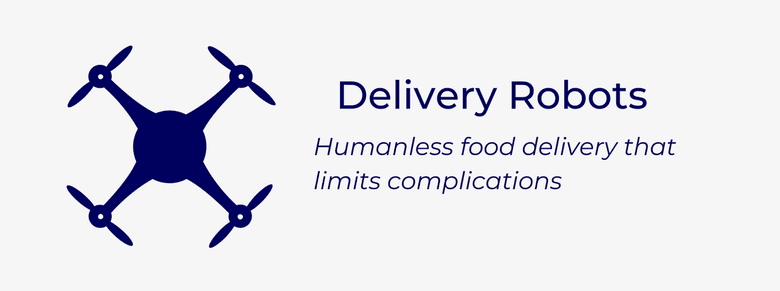
Retailers and in-person food service providers have lost a lot of revenue during the pandemic. Consequently, food delivery has thrived as dine-in options have been been restricted or closed. However, the rise in food delivery hasn't been seamless. Companies had to put complex safety measures in place and some workers have complained that their working conditions have worsened during the pandemic. Their contract status leaves them with erratic pay and limited benefits, all while facing health risks on the job.
Many companies have experimented using robots in place of drivers. This humanless system could eliminate the issues that come with contracted workers, as well as optimizing sanitization. Companies that have tested out delivery bots include DoorDash and Postmates, as well as Starship Technologies and the Korean company Woowa Brothers.
Our pick: Kiwi Campus

What do they do?
Kiwi Campus is a Colombian-owned delivery company based in California. As of now, it mainly operates on college campuses. Its mission is to bring down delivery time and costs using a system of three kinds of robots-- one to collect meals from the restaurant, a semi-autonomous tricycle to sort orders and take them most of the way to the delivery point, and a four-wheeled “Kiwibot” to navigate the last stretch to the customer.
What are they up to?
Kiwi Campus began service in San Jose in July of this year, launching 25 Kiwibots to deliver food and goods to downtown San Jose and Buena Vista, charging $3.99 per delivery. It partnered with Shopify and Ordermark to support orders from their customers. The current version of the robot is only semi-autonomous, requiring human supervisors to monitor and control the robots in different situations, and even step in and take full control when problems arise. However, the company is hoping to release the Kiwibot 4.0 at the end of the year, which will be larger with more sensors and cameras.
4. Ghost Kitchens
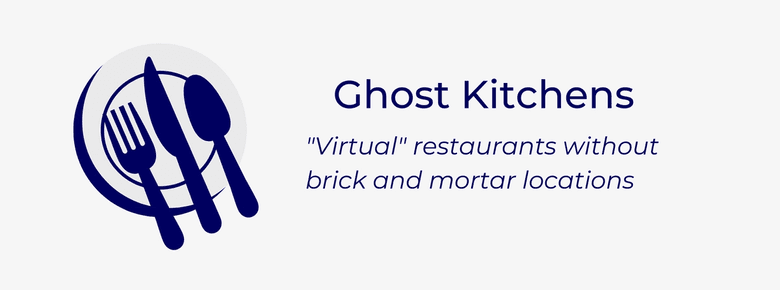
As delivery has taken off, so has another food system: ghost kitchens. Also called a virtual restaurant, a ghost kitchen is a space where restaurants can build their brand and fulfill orders without a brick and mortar location. Typically larger companies will buy facilities and rent out kitchen space to delivery-only restaurants, allowing them to save on many of the fixed costs of owning a restaurant. Some even handle the delivery and ordering logistics as well. Leading companies in this space include Reef Kitchens Miami, Zuul Kitchens, and Kitopi.
Our pick: CloudKitchens

What do they do?
Started by Uber co-founder Travis Kalanick, CloudKitchens provides infrastructure and software for delivery-only restaurants. The company website promises that their model allows restaurants to operate with minimal costs and maximum profits. They claim that clients can launch a kitchen in as little as one month, and because CloudKitchens’ services handle logistics and delivery, their customers are able to focus solely on cooking.
What are they up to?
FAT Brands Inc., which owns several national fast-food chains including Elevation Burger and Johnny Rockets, recently partnered with CloudKitchens to open some ghost kitchens in San Francisco. This deal brought some of FAT Brands’ concepts to the Bay area for the first time. “The San Francisco market has long been plagued with very expensive real estate, very expensive labor. The ability to enter the market with a ghost kitchen addresses both of those things,” said CEO Andy Wiederhorn.
5. Accessible Alternatives
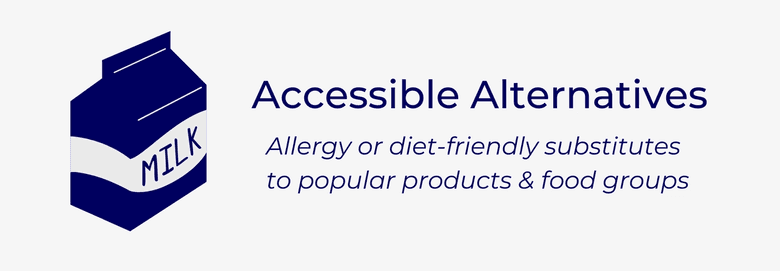
As allergies, chronic illnesses, and diverse diets leave customers searching for healthy alternatives to foods they love, many new food producers are seeing heightened success. For example, veganism has grown rapidly, adopted by 290,000 Americans in 2004 and 9.7 million in 2019. This has led to a rise in alternative protein, animal-free restaurants and food brands. Most recently, Beyond Meat and Impossible Foods erupted in popularity after offering their burgers at restaurants and grocery stores across the country.
However, many companies outside of the plant-based meat product space have also found success, like vegetable-based rice or wine purifiers that filter out sulfites.
Our pick: Oatly

What do they do?
Oatly is a vegan food brand founded in 1994. It wasn't launched in the US until 2016, where it was offered as a milk alternative in coffee shops. It uses patented enzyme technology to turn oats into alternative dairy products like Oatmilk, frozen dessert, and oat-based yogurt.
What are they up to?
Oatly recently faced backlash from customers after selling a roughly 10% stake in the company to The Blackstone Group in July of this year. Many environmentalists were upset at Blackstone’s alleged contribution to the destruction of the Amazon rainforest through other portfolio investments. In response, Oatly claimed that they decided to take an investment from Blackstone to prove that sustainable companies could be profitable, and to take funds away from more destructive potential investments.
Outside of the controversy, the CPG company has seen strong success during the pandemic, as oat milk sales were up 347.3% the first week of March. The company is also hoping to impact other parts of the supply chain. Oatly has been working with the nonprofits Sustainable Food Lab and Practical Farmers of Iowa over the past year to get US farmers to start growing food-grade oats as part of their normal crop rotations. It also recently expanded its brand into Singapore, starting with plant-based offerings in Starbucks across the country.
For updated intel on FoodTech, we recommend the Food Tech Show on Apple Podcasts
The information provided herein is for general informational purposes only and is not intended to provide tax, legal, or investment advice and should not be construed as an offer to sell, a solicitation of an offer to buy, or a recommendation of any security by Candor, its employees and affiliates, or any third-party. Any expressions of opinion or assumptions are for illustrative purposes only and are subject to change without notice. Past performance is not a guarantee of future results and the opinions presented herein should not be viewed as an indicator of future performance. Investing in securities involves risk. Loss of principal is possible.
Third-party data has been obtained from sources we believe to be reliable; however, its accuracy, completeness, or reliability cannot be guaranteed. Candor does not receive compensation to promote or discuss any particular Company; however, Candor, its employees and affiliates, and/or its clients may hold positions in securities of the Companies discussed.
